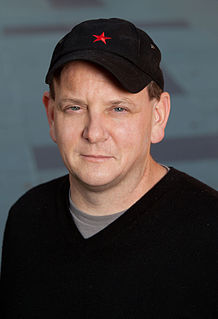A Quote by Gar Alperovitz
There are areas using what's called the "checkerboard strategy." They are different cities where you can move around the "checkerboard," doing things you can't do in every square, that you can do in some of them, building a mosaic of these kinds of practices. There are about 400 cable television networks, for example, that are publicly owned. That's a big fight for big private companies. In some areas, this is a political struggle, in some it's conventional common sense.
Quote Topics
About
Areas
Around
Big
Building
Cable
Checkerboard
Cities
Common
Common Sense
Companies
Conventional
Different
Doing
Every
Example
Fight
For Example
Kinds
Mosaic
Move
Networks
Owned
Political
Political Struggle
Practices
Private
Publicly
Sense
Some
Square
Strategy
Struggle
Television
Them
Things
Using
Related Quotes
They have a policy in China for their big companies called "Go abroad." It's a rational thing for both the company and the country to say, "We want big, successful companies." Particularly in areas where they need it: agriculture, energy, technology. I think banking, too. One or two have bought a trading house. Some have already begun expanding around the world. Of course they're going to have those ambitions. Why wouldn't they? They're just doing it methodically. It's a logical strategy and, well-executed, they will succeed.
There is state-run television in Russia, which is more loyal to the state, as it always is with state television in any country. We have private owned networks; some of them are oppositional. We have thousands of regional networks that, in their regions, are more watched than the so-called federal stations.
This is a really big space station. We do a lot of various kinds of work here, different kinds of science experiments; we have over 400 different experiments going on at any one time in different areas, from basic science research to medical technology, that hopefully will benefit more people on Earth.
In some big cities [in Pakistan] some women have access to a job and education - but the UN reported that more than 5 million girls cannot go to school. It's become an open secret. In some big cities they build schools to deceive people around the world, while the level of education remains very low, and even when they can go to school there is no security.
I think its going to be continually tougher on the big networks as more cable channels do really interesting television. The big networks have a choice to make: Do we try to be all things to all people and get the shows that will deliver 20 million viewers a week? Are we the McDonald's of television? Or are we going to try to be more specific?
I think what is true is that there's been an underlying division in the United States. Some of it has to do with the fact that economic growth and recovery tends to be stronger in the cities and in urban areas. In some rural areas, particularly those that were reliant on manufacturing, there has been weaker growth, stagnation, people feeling as if their children won't do as well as they will.
Even companies that do big business online struggle to be noticed by Google users. The Web, after all, is home to some 120 million Internet domains and tens of billions of indexed pages. But every company, big or small, can draw more Google traffic by using search-engine optimization - SEO, for short.
I think there's confusion around what the point of social networks is. A lot of different companies characterized as social networks have different goals - some serve the function of business networking, some are media portals. What we're trying to do is just make it really efficient for people to communicate, get information and share information.
No country has a perfect report card. While some countries have strong points in specific areas, they may have serious lacunae in other areas. For instance, some countries have made enormous progress on civil and political rights, but lag in the implementation of economic, social and cultural rights.
We were doing something called telemedicine, where we were using the ultrasound. One interesting application of this ultrasound is the possibility that you could possibly use it to measure critical bone areas during a long space mission and track if you're losing bone in these areas. On Earth, when they check you for bone loss, you get in this big machine. It's the size of a room and it's got a platform with an x-ray that scans your whole body and in critical areas and it takes a while and it just wouldn't be practical to have a machine like that in space.


































